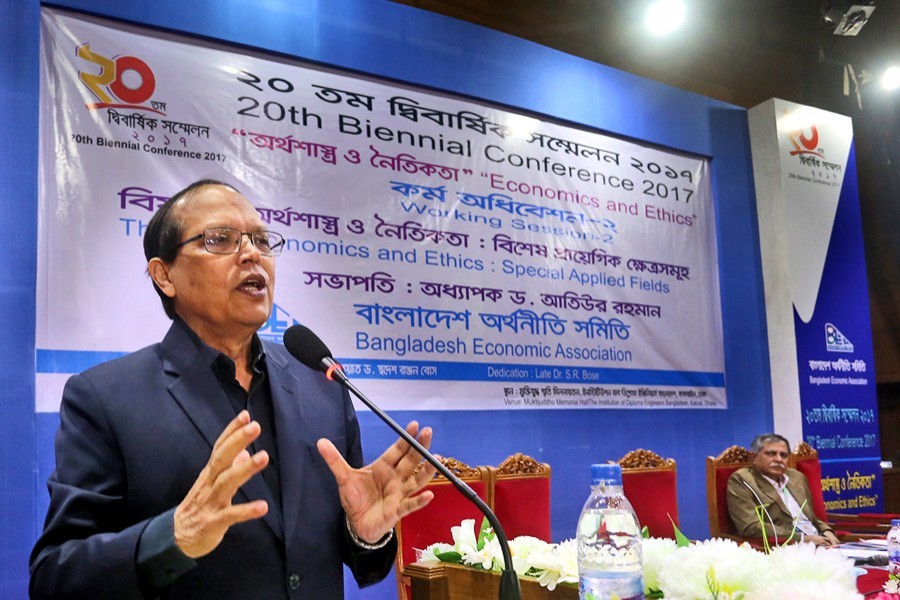
Published :
Updated :

The central bank should take stricter stance while dealing with ongoing controversies over some "non-performing" commercial banks, a former Bangladesh Bank governor suggests.
In the wake of such developments, especially revolving around loan default, forgeries and non-performing loans, Dr Atiur Rahman reminded that trust is the prime asset in banking that could be ensured through exercise of ethics.
While moderating a plenary session on the sidelines of the three-day-long BEA (Bangladesh Economic Association) 20th Biennial Conference on Friday, he said the regulator of the financial sector has to take care of interests of the depositors, who account for 90 per cent of the total capital of a bank here.
"Certainly, financial system is all about trust and all transactions are based on trust. So, maintaining trust of the customers is the overarching goal of the financial system--and this is the ethics," he told his audience at the cutting-edge function of the country's economists.
The immediate-past boss the central bank offered his suggestion about how to be trustworthy in banking. The way of maintaining trust of the people, he said, is through focusing on financial inclusion and financial literacy while maintaining price stability.
While discussing the role of Bangladesh Bank in maintaining trust of the customers, he said, "People at large put implicit faith in the currency signed by the Governor promising to pay the bearer on demand the face value of the note. It is this faith that makes people keep the currency as a store of value. It is this faith that underlies hundreds and thousands of cash transactions that take place every day and keeps the economy going.
"Maintaining the integrity of the currency note signed by the Governor is a responsibility that BB treats as sacrosanct not just a legal mandate but as an ethical responsibility."
Dr. Rahman also stressed the need for transparency in the financial sector for maintaining the trust of both depositors and borrowers who deal with banks.
They, he said, should never be disappointed while getting the financial services as promised by the central bank through its regulations.
While speaking on prevention of corruption in public-service delivery, Anti-Corruption Commission (ACC) Commissioner Nasiruddin Ahmed said the anti-graft body is conducting public hearings at upazila level for ensuring accountability of public officials and transparency in their work.
Based on the feedback received from the hearings, the ACC is also holding dialogue with government organizations for improving service delivery through business-process reengineering.
"Every public office is found vulnerable to corruption and system hardly works for public-service delivery during the hearings. It was also observed that public officials generally work for personal interest rather than public interest," he told the function.
"We're trying our best to change the scenario. But I think society needs to be organised and come up to raise their voices to ensure accountability at the public offices," he said.
The ACC commissioner also recommended some measures that could prevent the existing irregularities and corruption. These are: setting up help desk at each office, regular holding of information fair, holding weekly public hearing, using ICT (information and communication technology) like mobile app.
jubairfe1980@gmail.com


 For all latest news, follow The Financial Express Google News channel.
For all latest news, follow The Financial Express Google News channel.